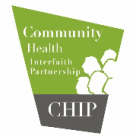From Lutheran Suicide Prevention Ministry
Recovery from this despair is possible and preventable.
Click on this TED talk for your education and use in your congregation:
91% of all suicide attempters live through it!
Wearing a mask is what we all do. For suicidal persons, that mask becomes more intense.
TALKING ABOUT MENTAL ILLNESS AND SUICIDE HELPS PEOPLE FEEL LESS SHAMEFUL
ABOUT GETTING HELP
Recent Celebrity Deaths Draw Attention to Rising Suicide Rates
Anthony Bourdain’s and Kate Spade’s deaths by suicide have sent shock waves throughout the country. Coupled with data recently released from the CDC highlighting that suicide rates are going up for everyone between the ages of 10 and 75, we know something has to be done. There is a mental health crisis in America, and we all need to step up to the plate.
What to do if someone you know is suicidal
Please call the National Suicide Prevention Lifeline at 1-800-273-8255 if you or someone in your life is thinking about suicide. And offer Mental Health First Aid as a resource to your friends and family. There are already more than 1 million people trained across the country. Although many people worry that asking, “Are you thinking about killing yourself?” will insult someone they are trying to help — or worse, encourage someone to act on suicidal thoughts — Mental Health First Aid teaches that the opposite is true.
The more educated we all are on matters of mental health, the better hope we have of reversing the troubling trends developing around anxiety, suicide and depression. Let’s spread the word and make as much of a positive impact as we can.
Mental Health First Aid USA Launches New Module to Address Unique Needs of First Responders
A training program to specifically target the mental health needs of firefighters and EMS workers
WASHINGTON, D.C. (May 15, 2018) – With one out of every five persons experiencing a mental illness every year, it is highly probable that firefighters and emergency medical service (EMS) personnel will encounter someone facing a mental health or substance use crisis. That is why the National Council for Behavioral Health today announced its newly created Mental Health First Aid training supplement that provides firefighters and EMS personnel with the skills they need to support themselves, the people they serve and their colleagues through a mental health or addiction crisis – the Fire/EMS module.
It has also become widely recognized that first responders are almost four times more likely to die by suicide than in the line of duty, often driven by the traumatic, high-stress situations they encounter daily in a culture that discourages any sign of weakness. By openly addressing and acknowledging the mental health challenges they face, we can embrace the notion that these issues are no different than any other injury or disease. We can also ensure they get the mental health support and services they need.
“Firefighters and EMS workers are first on the scene to not only witness an accident, injury or shocking event, but also deal with the emotional repercussions – both within themselves and their community,” said Linda Rosenberg, president and CEO of the National Council for Behavioral Health. “Over time, that takes a toll, and the Fire/EMS module was created to address that. It’s critical they know what services are available to them and where to go for help – we owe them that.”
Mental Health First Aid for Fire/EMS provides a fundamental understanding of the common mental health challenges experienced by first responders and the skills to identify and respond to people who may be in crisis. The program also teaches post-crisis strategies for first responders to better assess and access support for themselves, their colleagues and community members.
“The stigma surrounding mental health is so severe that many of our first responders cope by turning to alcohol, using prescription medications and attempting or completing suicide,” said Angela Leath, crisis intervention administrator for Las Vegas Fire and Rescue. “The time to start recognizing and joining together to initiate change for this population is well overdue, and this is where Mental Health First Aid for Fire/EMS will play a vital role.”
To learn more about Mental Health First Aid for Fire/EMS, please visit www.MentalHealthFirstAid.org.
About the National Council for Behavioral Health
The National Council for Behavioral Health is the unifying voice of America’s health care organizations that deliver mental health and addictions treatment and services. Together with our 2,900 member organizations serving over 10 million adults, children and families living with mental illnesses and addictions, the National Council is committed to all Americans having access to comprehensive, high-quality care that affords every opportunity for recovery. The National Council introduced Mental Health First Aid USA and more than 1 million Americans have been trained. For more information about the National Council, visit www.TheNationalCouncil.org.
CONTACT
Jamie Mondics, (215) 439-8512
[email protected]
Congregations are invited to join the Fulton County PICH Program’s Interfaith Active Living Initiative and grow a more dynamic Health Ministry, launch or expand walking programs for youths and adults, set healthy living guidelines for all services and events, and fellowship with other Active Living Interfaith groups. For more information contact Wykinia Hamblin, Health Coordinator, Physical Activity, Fulton County Health and Wellness at (404)612-9467 or [email protected]
Clergy members are not immune to depression or suicide. If anything, clergy members are an under-represented population in terms of traditional mental health outreach. How can we support our clergy in a manner that is truly helpful? Essay from Marty Duran on pastors who commit suicide
Read this thoughtful consideration of the hurdles faced by a person with a mental illness preparing for a career practicing law New York Times 8/6/13.
Thinking of Ways to Harm Her - The New York Times -Studies are revealing a more complex view of maternal mental illness.
What Faith Communities Can Teach Psychiatrists About Depression

